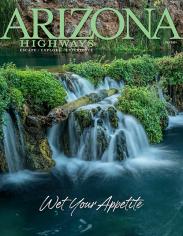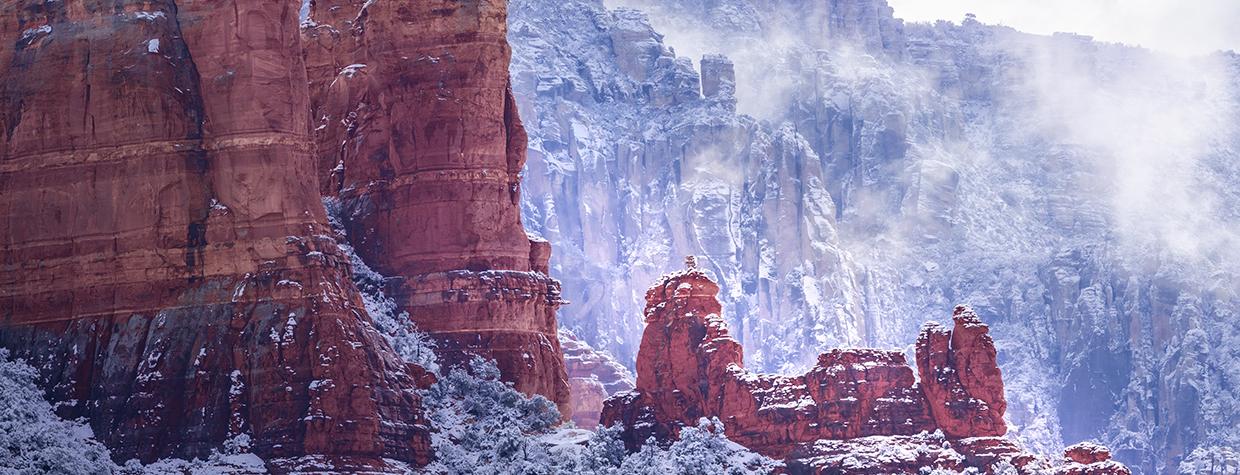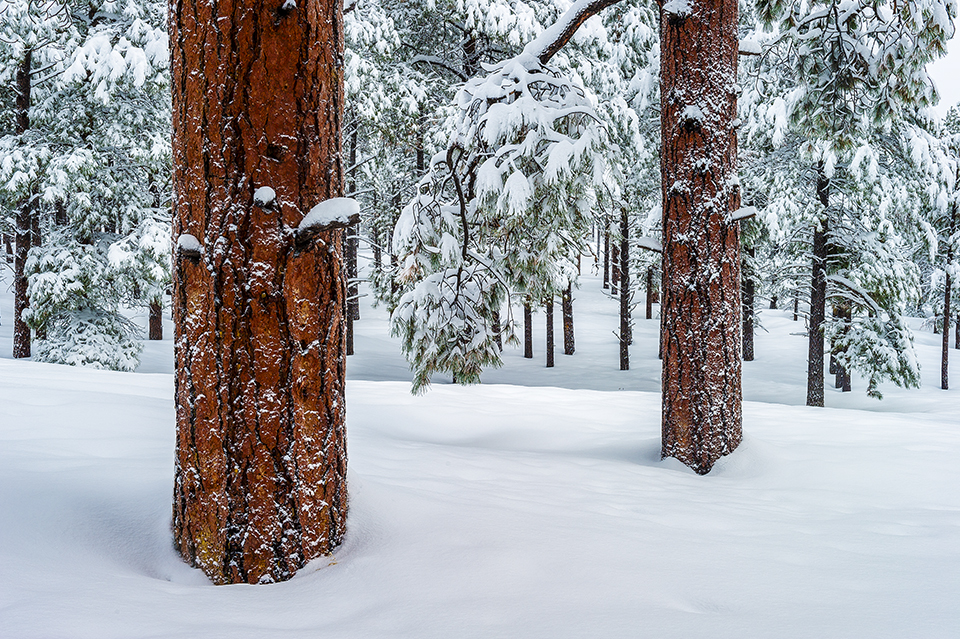
Ponderosa pine trunks stand out in a landscape of white in the Flagstaff area. A quintessential winter tree species, ponderosa pines rely on moisture from snowmelt, along with monsoon rains, to provide water for their deep roots.
Shane McDermott
NIKON D35, 0.8 SEC, F/13, ISO 200, 45 MM LENS
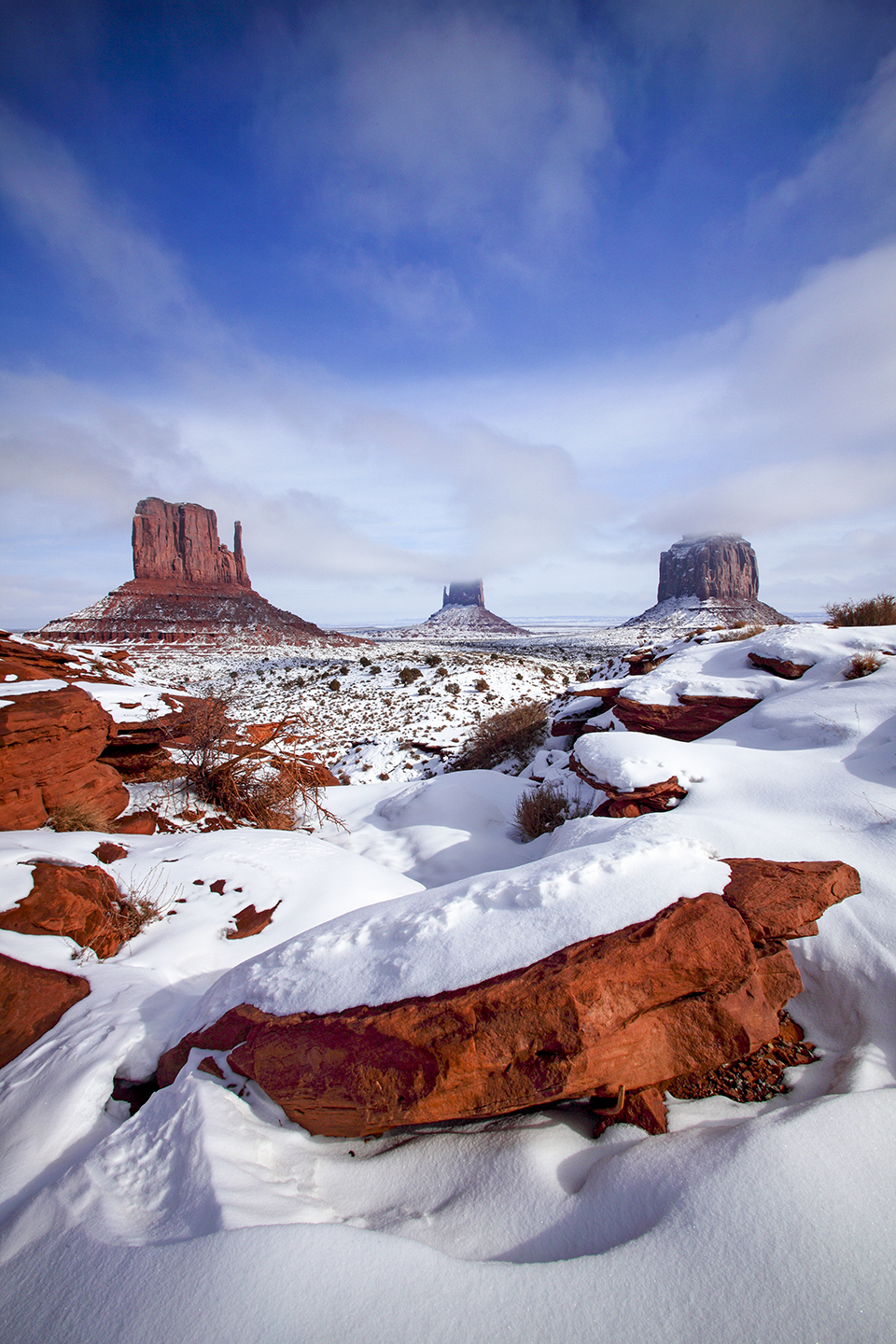
Low clouds and snow cloak the Mittens and Merrick Butte, three of the most photographed buttes in Monument Valley. This part of the Navajo Nation rarely sees this much snow — on average, less than 6 inches falls on Monument Valley each year.
Bruce D. Taubert
CANON EOS 5D MARK II, 1/125 SEC, F/18, ISO 200, 17 MM LENS
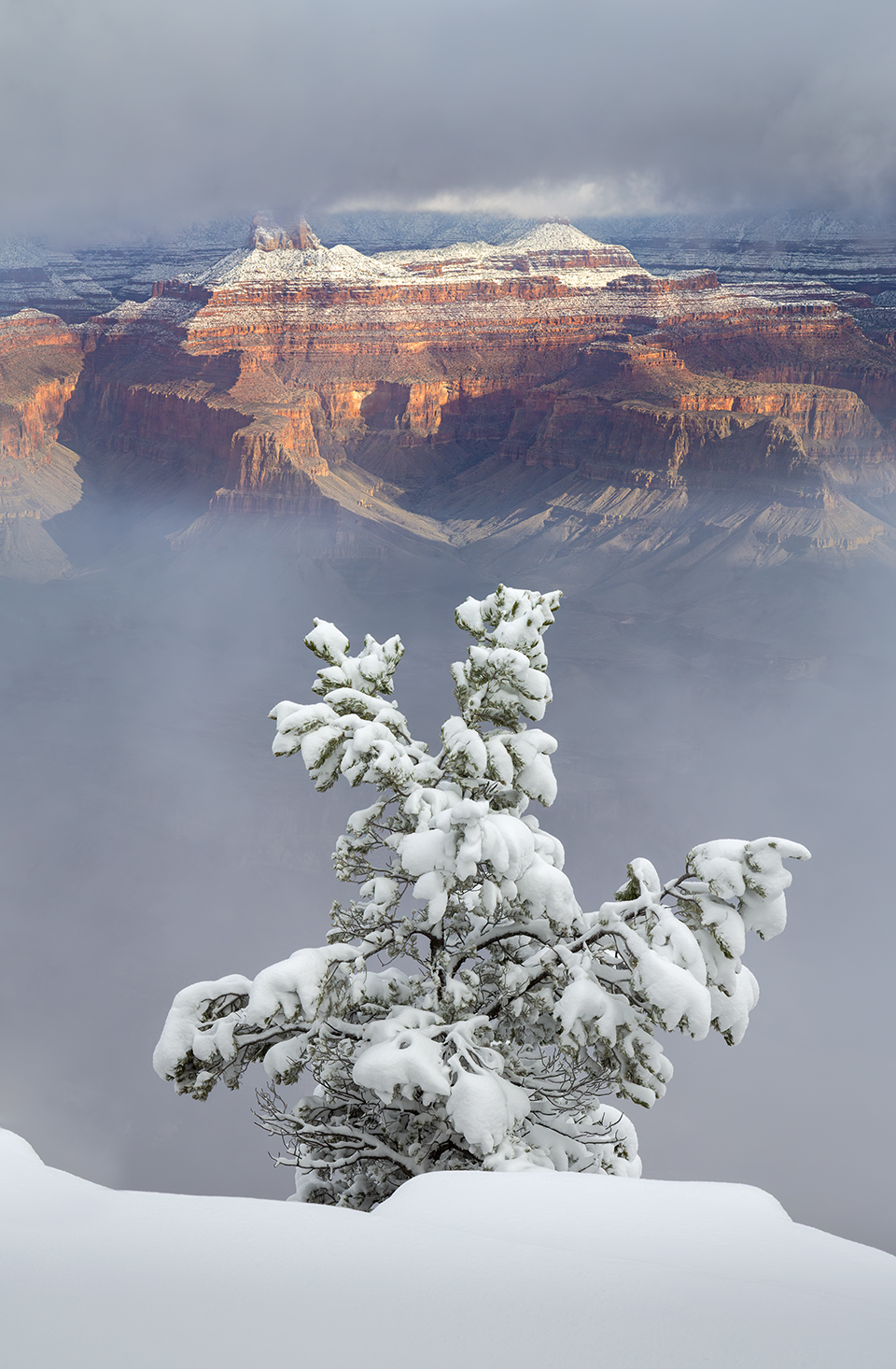
Yavapai Point, on the South Rim of the Grand Canyon, offers a view across the Canyon to the North Rim during a winter storm. While the South Rim is open to visitors year-round, heavy snowfall typically makes the North Rim inaccessible for much of the year.
Paul Gill
CANON EOS 5D MARK III, 1/80 SEC, F/13, ISO 100, 67 MM LENS
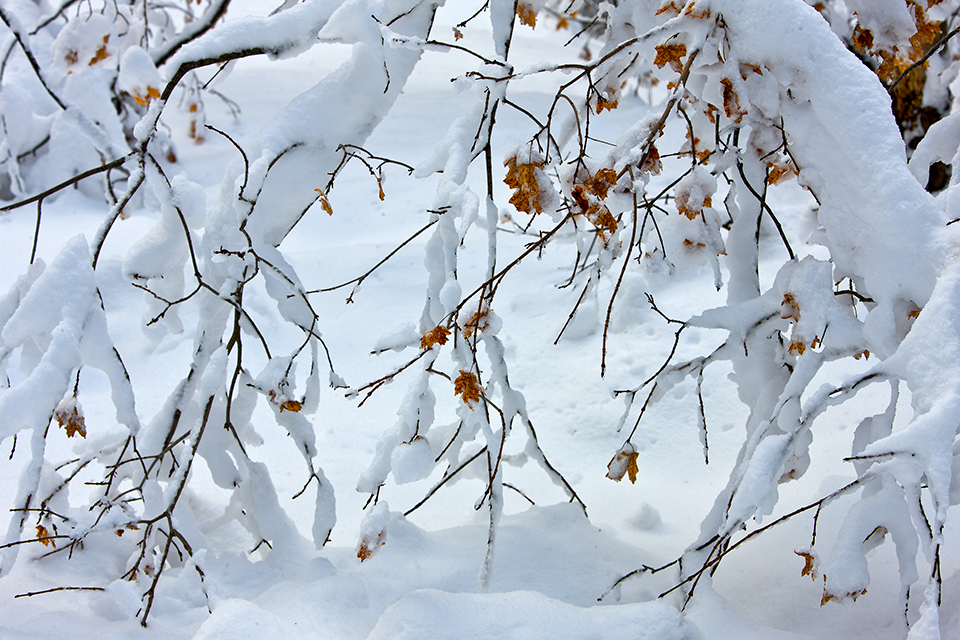
Snow sticks to tree branches, still clinging to their fall foliage, in the Sedona area. While most visitors come to Red Rock Country during warmer times of year, winter offers a different way to experience the area’s dramatic landscapes.
Suzanne Mathia
CANON EOS-1DS MARK III, 1/13 SEC, F/11, ISO 100, 70 MM LENS
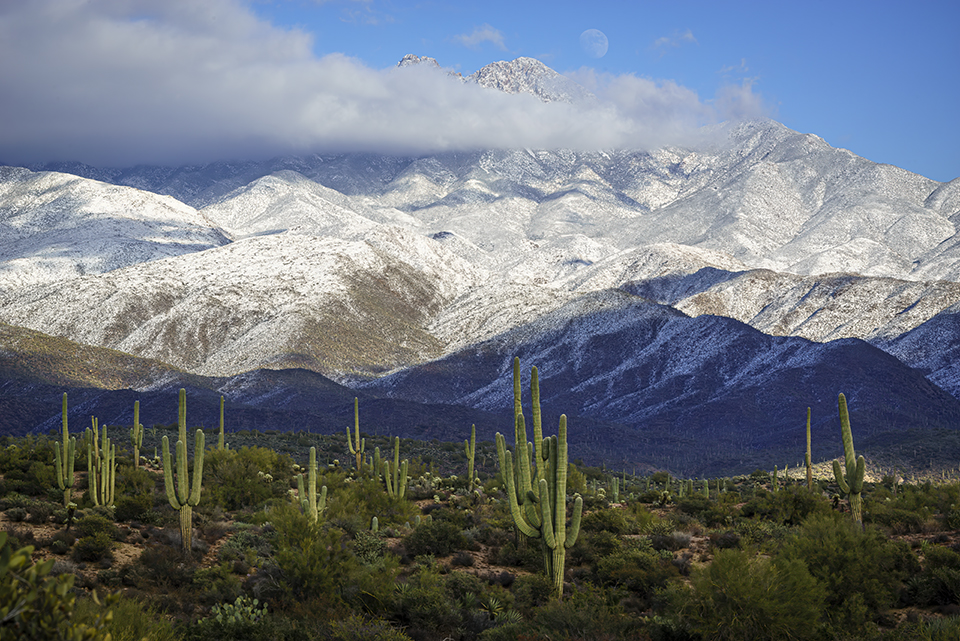
The Four Peaks, covered with snow and shrouded by clouds, form the backdrop for a Sonoran Desert landscape of saguaro and cholla cactuses. Visible from the Phoenix area, the Four Peaks often display heavy snowfall in winter.
Rusty Childress
SONY ALPHA 7R, 1/200 SEC, F/22, ISO 500, 130 MM LENS
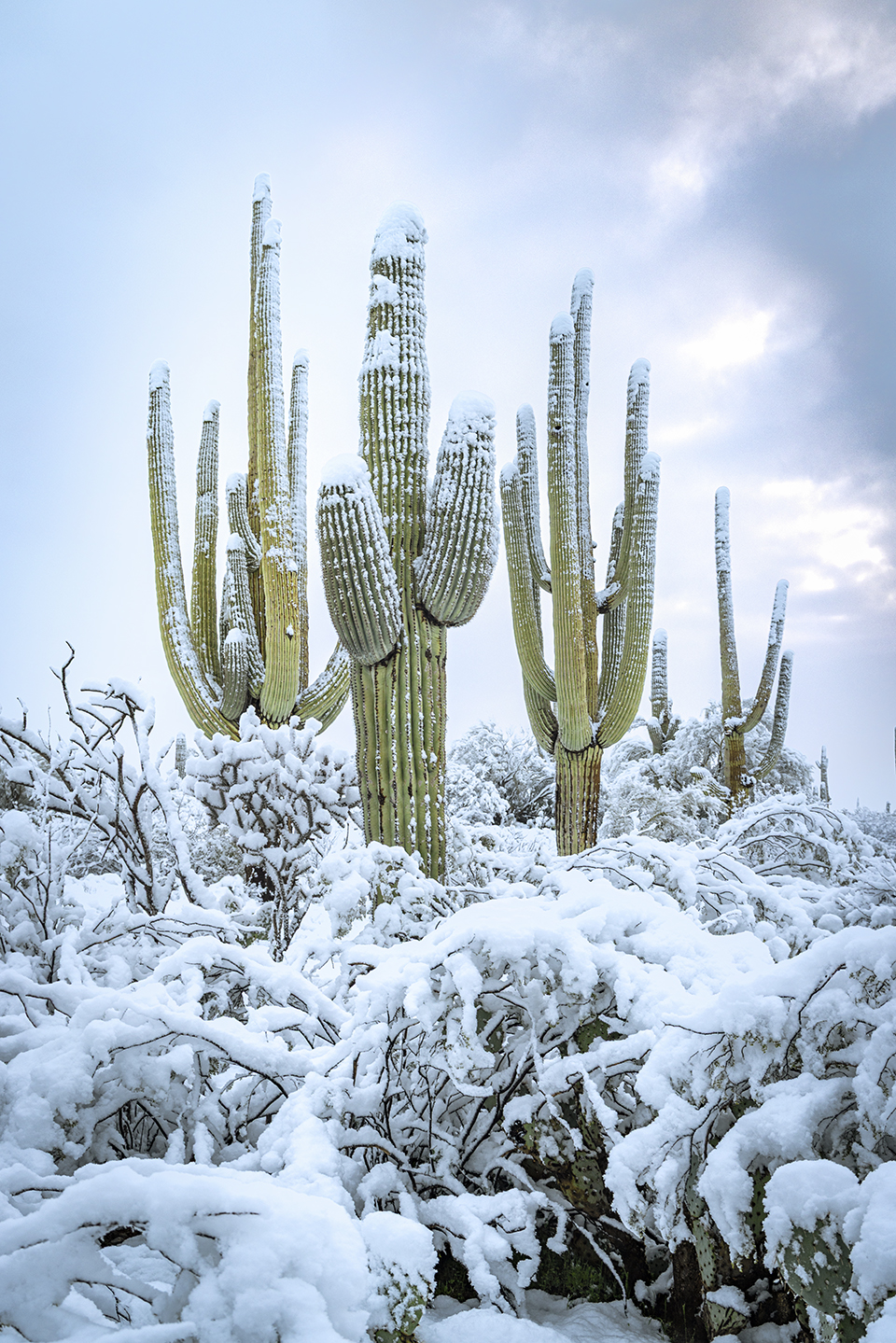
Healthy saguaros and other desert flora wear a thick coat of white in the Owl Head Buttes, north of Tucson in the foothills of the Tortolita Mountains. Saguaros can tolerate snowfall and even brief periods below freezing, but prolonged freezes can damage or kill these cactuses.
Paul Gill
CANON EOS R5, 1 SEC, F/8, ISO 100, 40 MM LENS
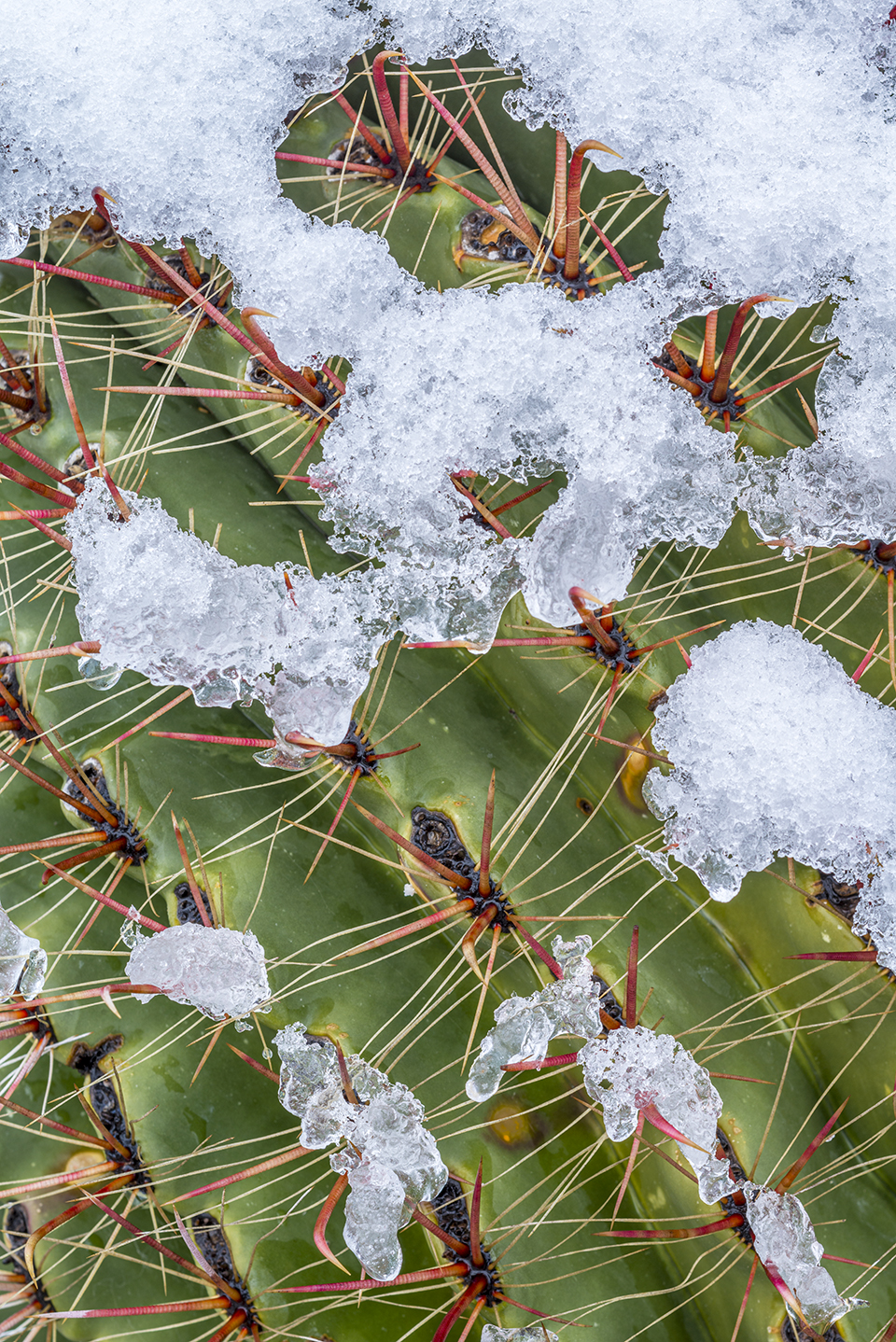
Snow adorns a barrel cactus after a January storm at Catalina State Park, near Oro Valley. This 5,500-acre site, a haven for countless Sonoran Desert plant and animal species, became a state park in 1983.
Jack Dykinga
NIKON D800E, 1/25 SEC, F/16, ISO 100, 85 MM LENS
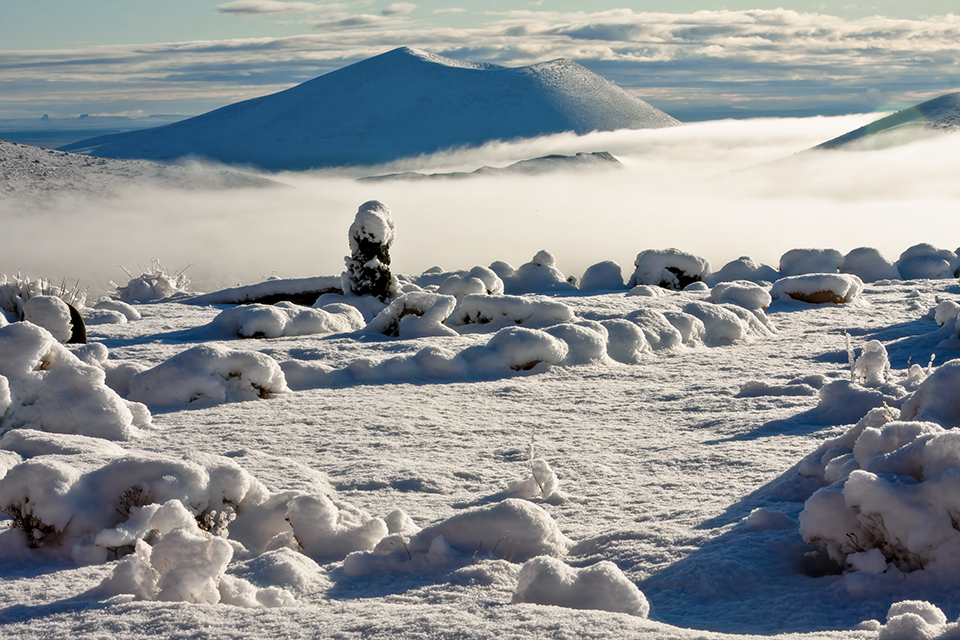
Merriam Crater, a dormant cinder cone volcano northeast of Flagstaff, emerges from a sea of fog and snow. This volcano last erupted some 20,000 years ago, according to the U.S. Geological Survey.
Bernhard Michaelis
CANON EOS 40D, 1/100 SEC, F/18, ISO 100, 58 MM LENS
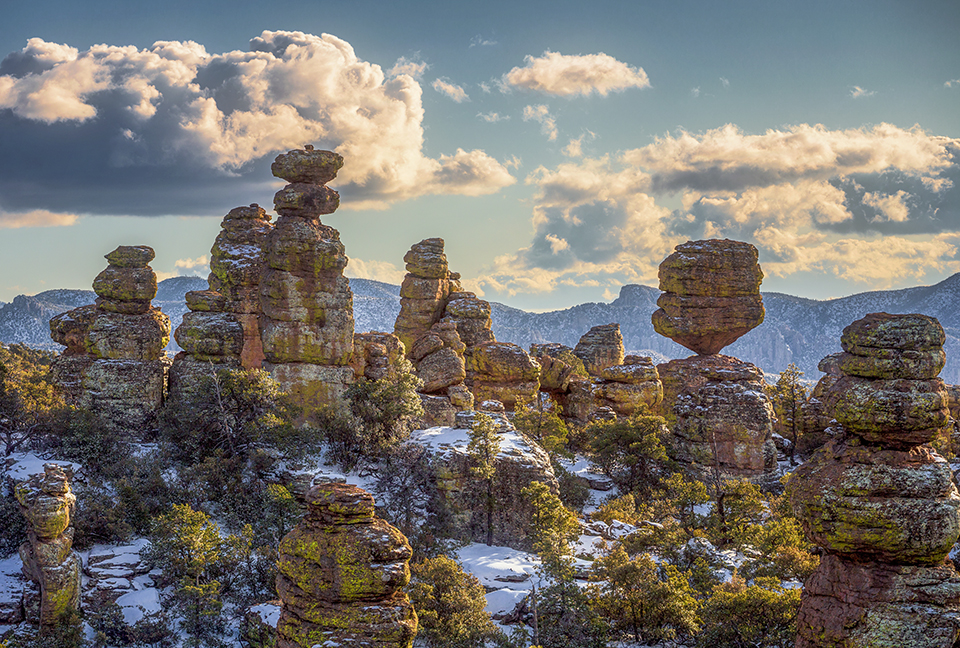
Light snow adorns the hoodoos of Southeastern Arizona’s Chiricahua National Monument. These hoodoos formed over tens of thousands of years via frost wedging, which involves water seeping into cracks in rocks and gradually widening them as it freezes and thaws.
Sean Parker
CANON EOS 6D, 1/200 SEC, F/7.1, ISO 100, 70-200 MM LENS
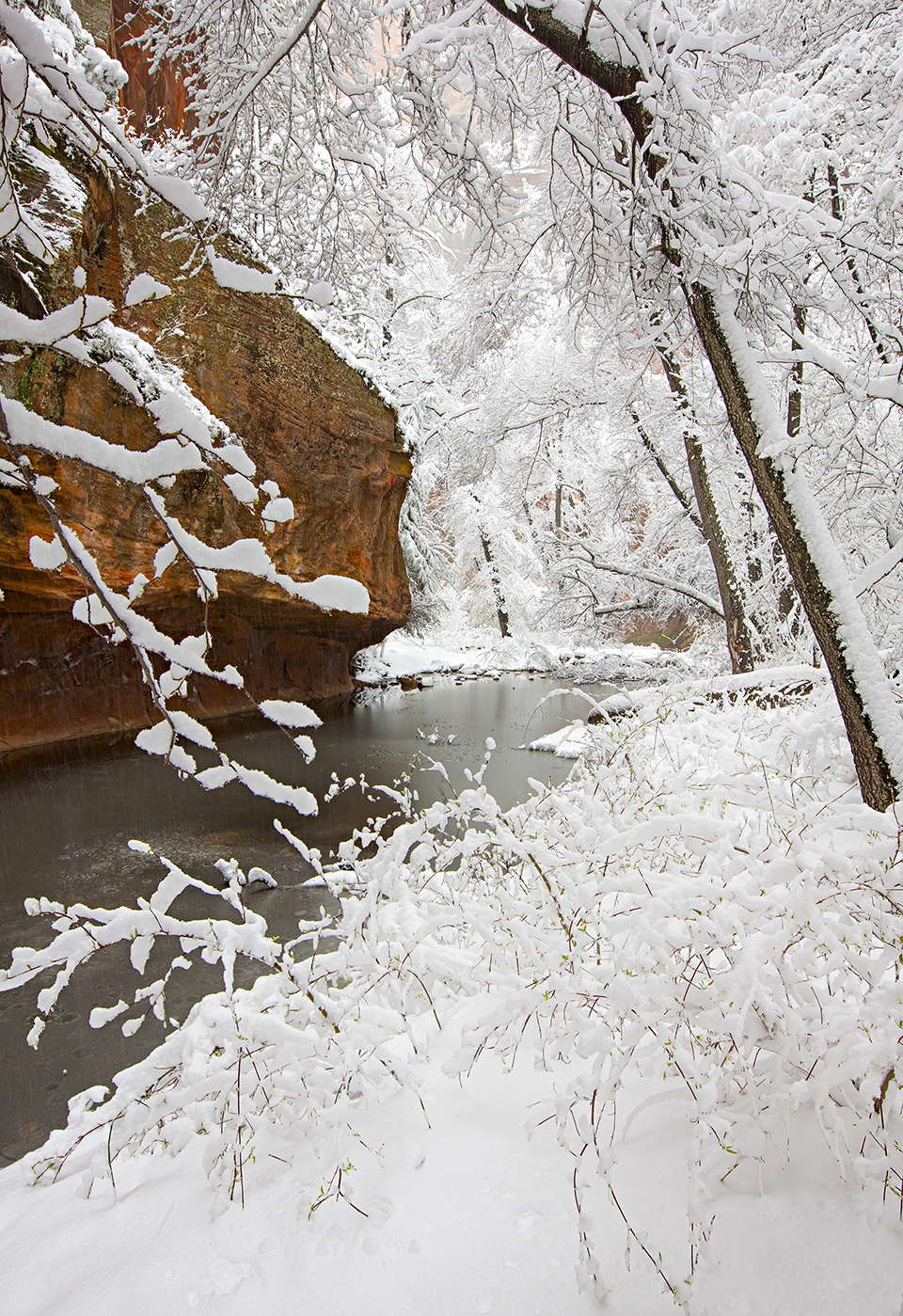
The frigid West Fork of Oak Creek, near Sedona, flows through a wintry landscape marked by snow-covered branches and a sandstone cliff. The popular hiking trail along the West Fork is accessed via a parking area along State Route 89A in Oak Creek Canyon.
Derek von Briesen
CANON EOS-1DS MARK III, 1/15 SEC, F/16, ISO 100, 21 MM LENS
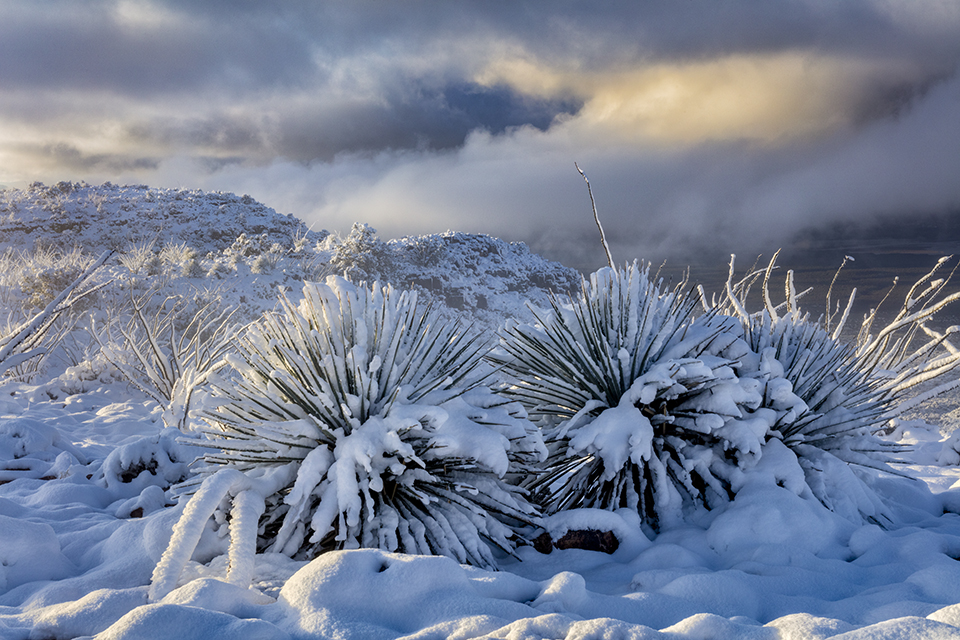
Snow blankets yuccas and ocotillos in Parker Canyon, a remote canyon in the equally remote Sierra Ancha of Central Arizona. Known for its steep canyons and numerous archaeological sites, the Sierra Ancha is protected by a 20,000-acre wilderness area managed by the U.S. Forest Service.
Claire Curran
CANON EOS 5DS R, 1/25 SEC, F/29, ISO 200, 50 MM LENS
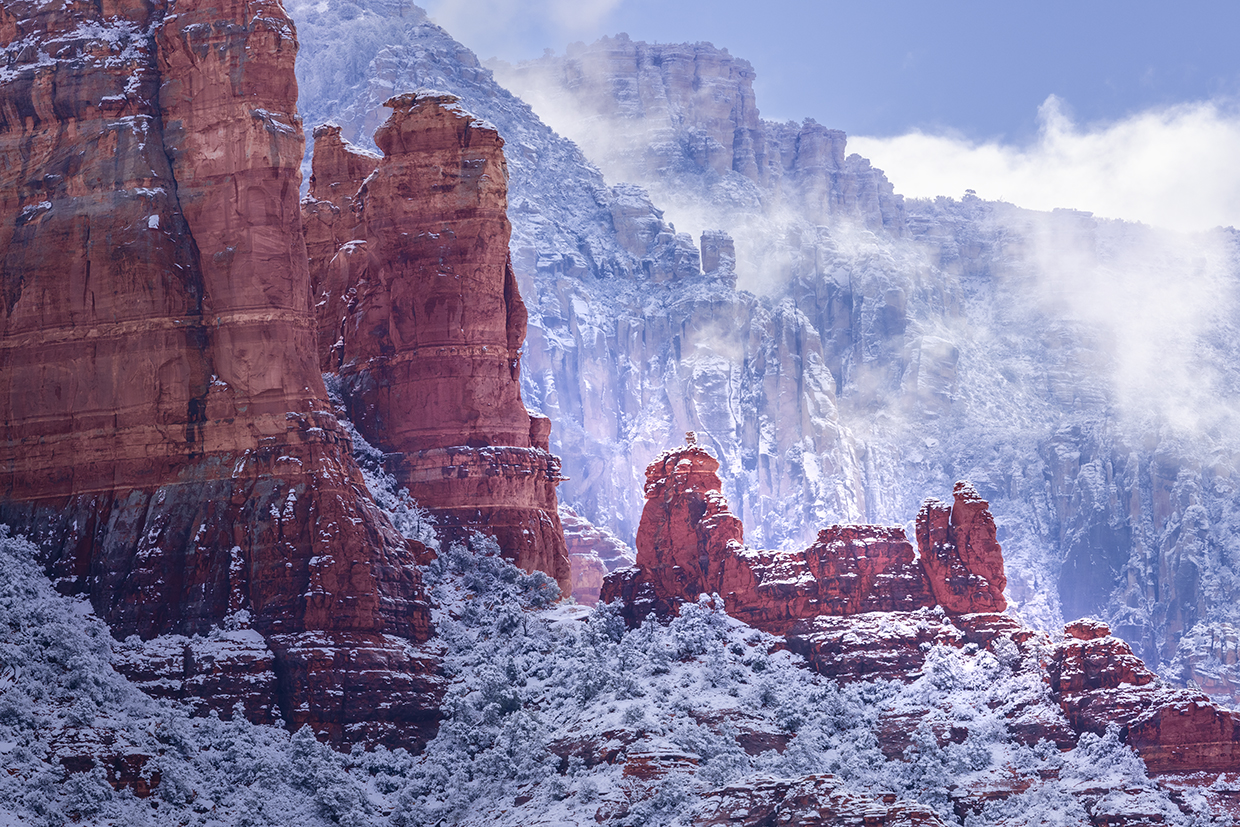
Fog and snow-covered foliage combine to form a wintry scene amid the sandstone buttes of Red Rock Country. The formations seen in the foreground are part of Snoopy Rock, named for its resemblance to the Peanuts character.
Larry Lindahl
CANON EOS R5, 1/400 SEC, F/11, ISO 200, 343 MM LENS
